Story #32Familia’s Olohuone was created as a meeting place for foreign families and Finns. Since its inception the aim has been to offer the opportunity to have fun, meet other people, learn Finnish, and get familiarized with the Finnish life. In the early 1990s, Familia Club boasted over 500 members, comprising young individuals hailing from over 70 diverse countries. Approximately half of the members were Finnish, and around 90% of the community consisted of bi-cultural families. Olohuone welcomed people from all over the world: children, young people, adults, and the elderly. This is what made Olohuone so popular and unique- a place where Finns and foreigners, young an old can meet, get to know each other, and have a relaxing time.
Another highlight of the Olohuone activities in the early stages was the Finnish language day courses. Families were always welcomed to bring their children because childcare was provided. For example, Finnish was studied in 4 different groups at Familia’s premises. Teaching was provided by Helsinki Tyovanopisto. Many women had been living in Finland for more than 10 years, but they couldn’t continue their Finnish language classes. Only the cooperation between Familia and the Tyovanopisto opened a real study option for them. The results were good and there were far fewer dropouts than anywhere else at that time. Moreover, the children were happy to come to Familia to play with other children while their parents were learning Finnish! If a child missed the parents, they could always peek through the door. Children’s activities within the Olohuone’s activities involved playing, singing, and telling stories primarily in English. The whole idea behind this activity was to strengthen the children’s own identity. The children met each other and at the same time, they discovered that there is a place in Finland where they were just like everyone else. In the Arabic-speaking children’s group, children were also taught letters through play. It was made possible at the request of the parents- and Familia provided the platform!
Familia Club, as other organizations, faced the challenges of obtaining enough resources to keep the activities up and running. The City of Helsinki’s Social Welfare Department gave an operating grant of 150,000mk per year, the Youth Affairs Centre 9,000mk a year, and the Cultural Affairs Centre helped pay a part-time director. Familia also received a yearly grant of 33,000mk from the Ministry of Education. At this time, Familia employed few staff members primarily allocated to look after children, run the kitchen, and some focused on running some activities. Similar activities started to be organized by other few organizations. There was a social demand to provide a space for families to meet, particularly young families who often felt loneliness. Familia welcomed visitors who wanted to know how to set up their own “Familia”.
Familia’s Olohuone in Merihaka was getting small for all the activities and number of attendees. Regardless, people kept coming. Children could free play, mothers relax, and even fathers gathered to play pool. Nonetheless, soon after, Familia rented party rooms from Kallio’s Parrish and City of Helsinki. A positive side from the overcrowding was the arrival of new friends and members.
excerpt translated from finnish from monikultturiyhdistys familia club vuosinna 1987-1997 book and familia's archives.
|
Haluamme kertoa juhlavuotemme kunniaksi 35 tarinaa kahden kulttuurin perheistäJulkaisemme 35 viikon ajan 35 erilaista tarinaa, jotka kuvastavat monia haasteita ja mahdollisuuksia, joita kahden kulttuurin perheet jokapäiväisessä elämässään kohtaavat. Haluamme näiden tarinoiden heijastavan todellisuutta ja tarjoavan vertaistukea, voimaannuttavia kokemuksia ja inspiraation lähteitä sekä lisäävän tietoisuutta kulttuurienvälisyydestä ja monikielisyydestä Suomessa. For 35 weeks, we will be publishing 35 different stories that reflect the many challenges and opportunities intercultural families face in their everyday lives. We want these stories to reflect reality and serve as an accessible peer support, source of empowerment and inspiration, and increase awareness of Interculturalism and Multilingualism in Finland.
Archives
January 2024
Categories |
|
|
© Familia 2024

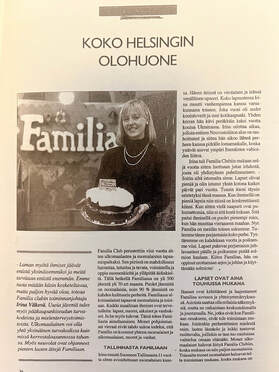
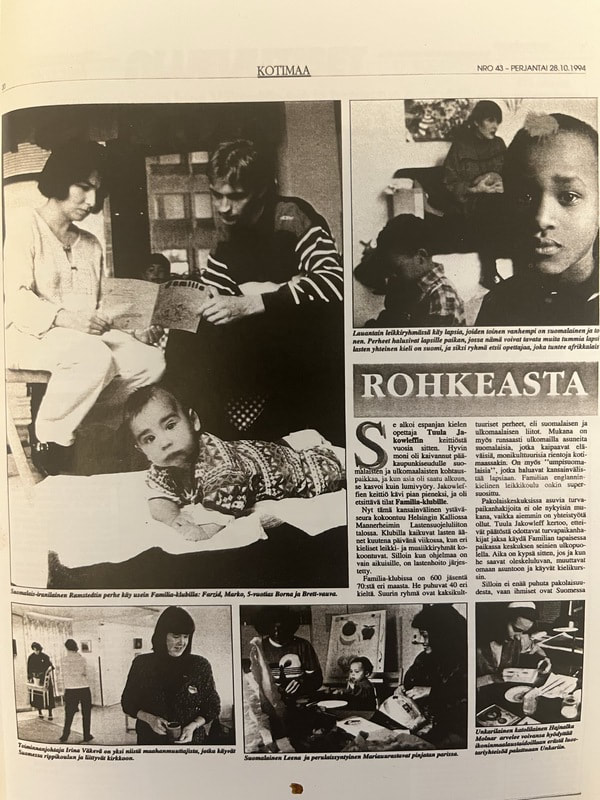
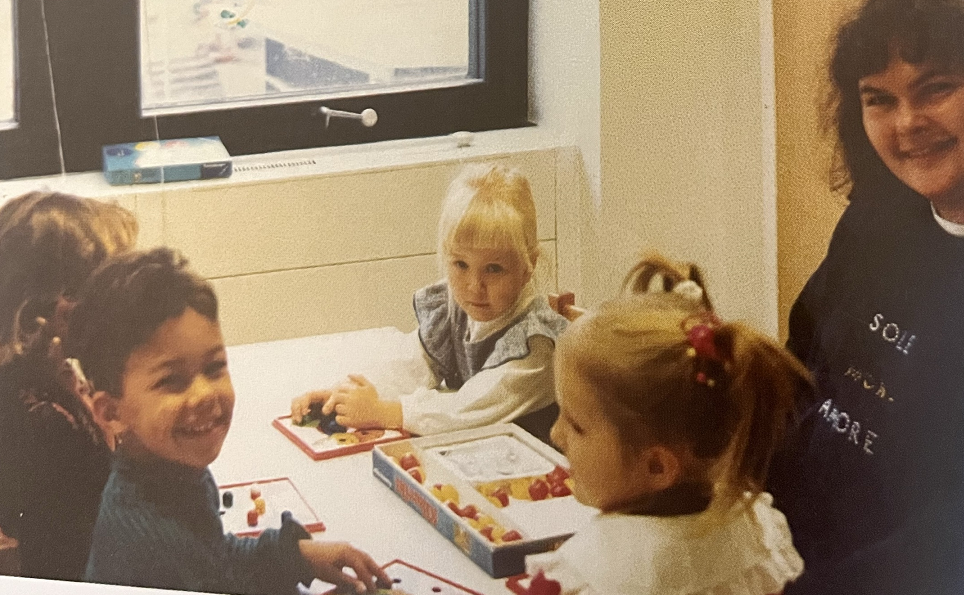
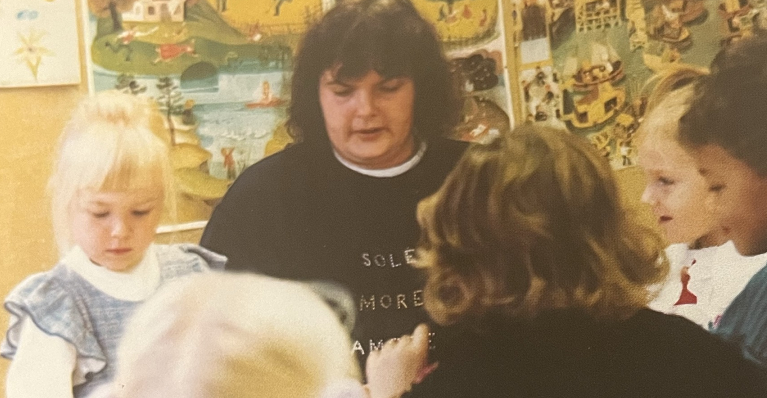
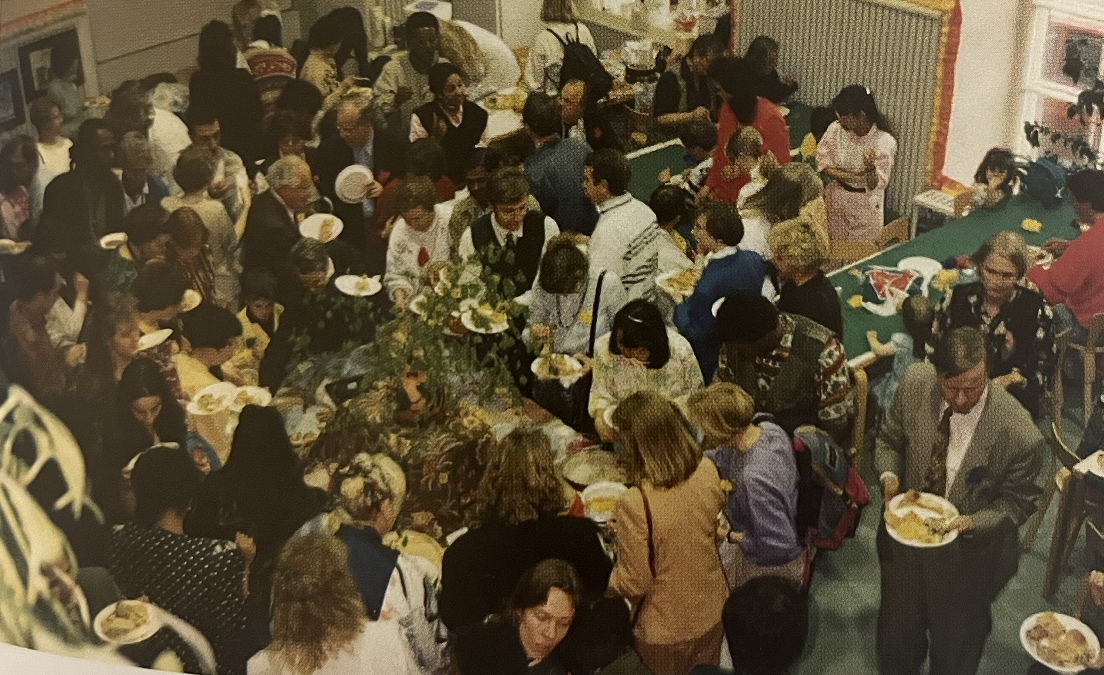
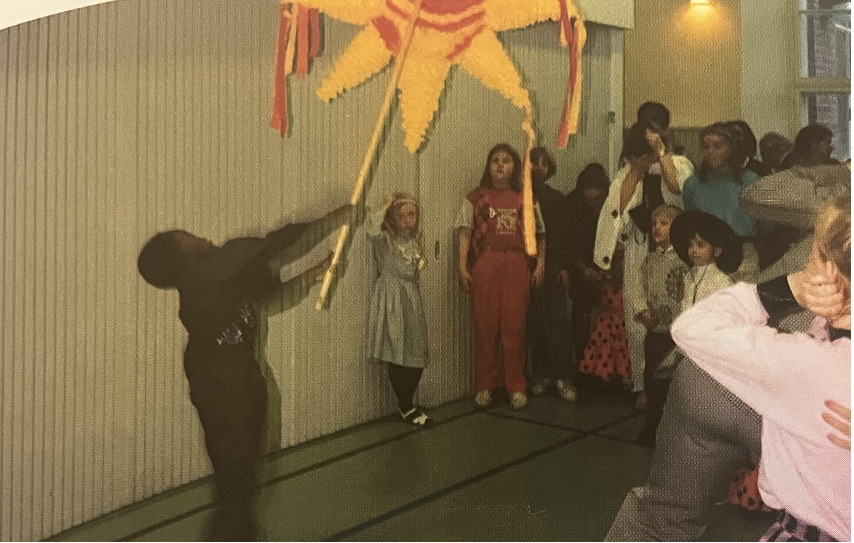
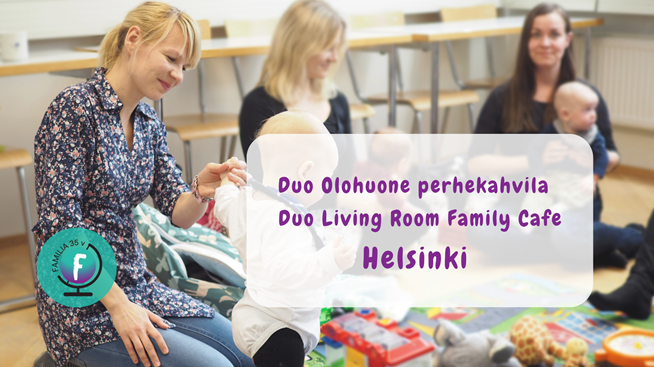
 RSS Feed
RSS Feed

